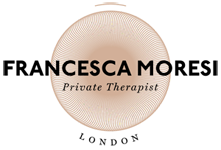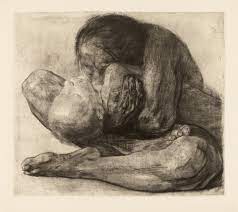Food for your thoughts, we say. And that’t incredibly important.
How we feel depends on the quality of our thoughts, so we need to feed them properly. The mind needs a variety of stimuli to sparkle and to maintain good levels of neuroplasticity in the brain. Wonderful. But I think there’s more to it. Yes, when we are intellectually stimulated there can be satisfaction; a sense of being challenged or a sense of accomplishment; more self-awareness, even. As important as this is, many people start therapy because they still feel a void, an emptiness, and they tend to fill it with medications, food, shopping, alcohol, drugs, parties and so on and so forth. What’s missing, is the food for the soul. I don’t know if the notion of soul belongs to your belief system but it doesn’t have to, in order to continue reading: think of it as your authentic self, or your truth, or your heart – no need to tap into anything spiritual unless you feel it. So let’s dive into it.
Some time ago I went with one of my best friends to the Royal Academy of Arts to see the exhibition Making Modernism, dedicated to pioneering women working in Germany in the early 1900s. What an experience…I left the museum with a sense of fullness that I hadn’t felt in a long time. Alongside it I was feeling peaceful, grateful and joyful. My eyes were tearful for so many different reasons. The works we saw belonged to six different women artists who led different lives, and this reflected in different styles as well as in different subjects. I was struck not only by the beauty, but also by the complexity of the emotions behind each art work. I am going to share a few with you here.

Käthe Kollwitz, Lovers Nestling Against Each Other, 1909/10.
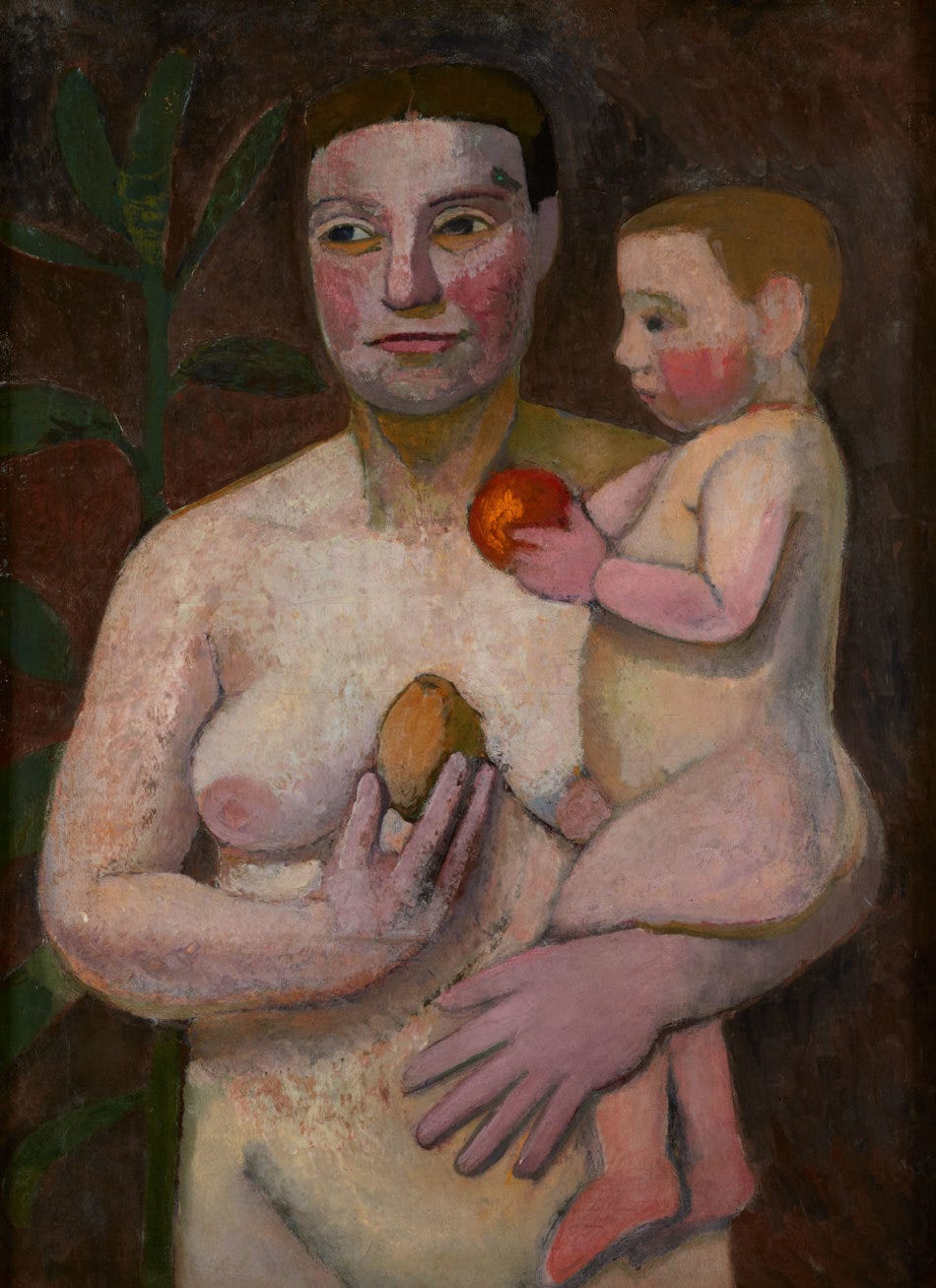
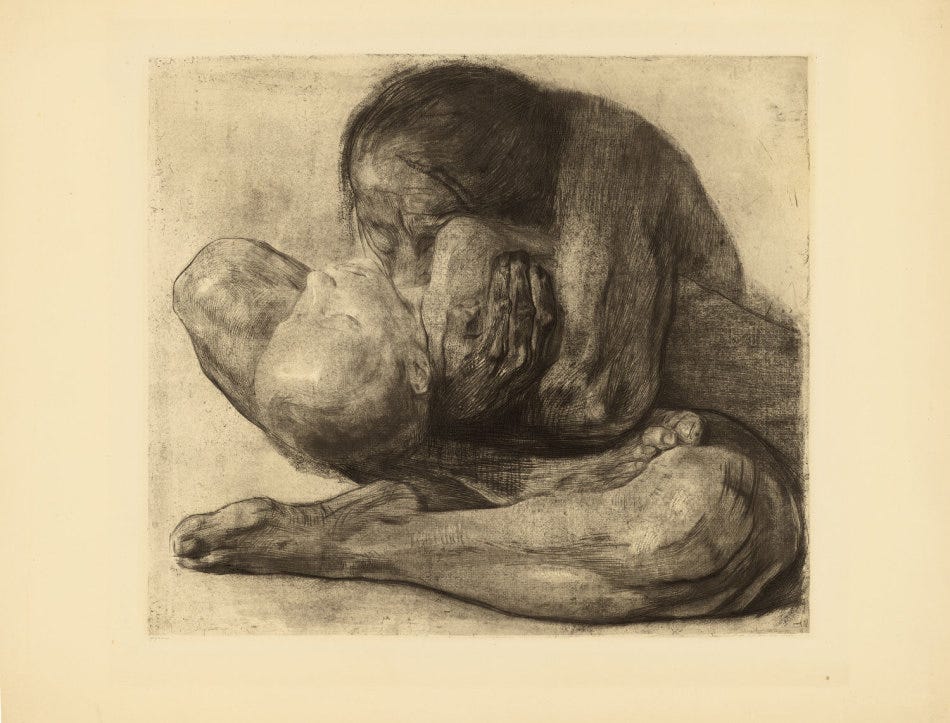
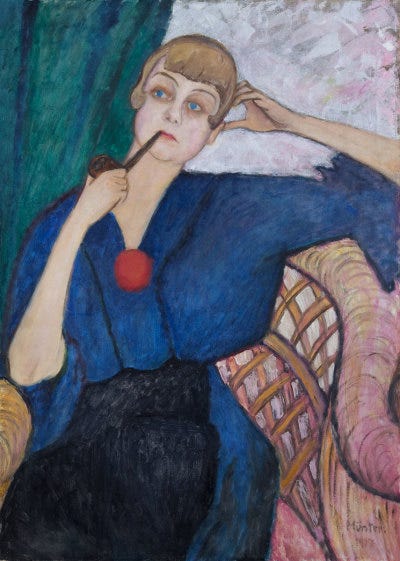
Gabriele Münter, Portrait of Anna Roslund, 1917.

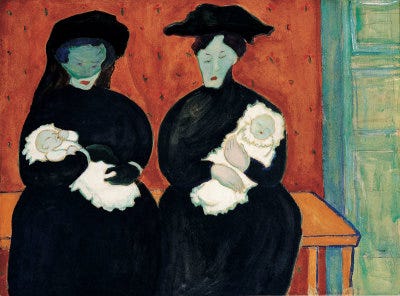
I feel as if I have seen the whole world in this exhibition. I laughed, I cried, I was moved, I was disturbed at times, I was entertained. I felt fulfilled by what I saw because it put me in touch with the artists’ souls, with their authenticity, and therefore with my own. I’ve noticed that most people use a binary system to judge what they feel as well as their experience: good or bad, happy or unhappy, positive or negative, right or wrong. The good is to seek, the bad is to avoid. The positive is preferable to the negative. I am pleased if things go right but I feel depleted if they go wrong. Do you relate to this? Not only that is simplistic, but it’s also very tricky. Human experience is complex and we cannot wait for things to be good to be happy; and in fact most people feel unhappy and frustrated because things don’t go “in the right direction”. Look at the images above: they show life and death in their complexity, in their ambivalence. My favourite of these art works is Woman with Dead Child, the third photo from the top: it’s a Pietà, like Michelangelo’s one, and to me it talks about death as much as it talks about life and love. When we accept both the polarities, when we accept their inextricable entanglement, then we can finally feel full and fulfilled. And our soul is fed by anything – art, nature, music, experiences, relationships – that, with its beauty, can bring us there.
Beauty is everywhere, if we look for it.
Italian poet Franco Arminio wrote:
GUARDARE: io guardo ogni cosa come se fosse bella. E se non lo è vuol dire che devo guardare meglio.
I will try to translate it at my best: TO LOOK: I look at everything as if it were beautiful. And if it isn’t it means that I must look better. Do you see beauty all around you? If not, why do you think that is? Do you accept your life as it unravels or do you try to manipulate it to avoid the negative side of it?
I want to share with you a piece of music that I keep listening to because it’s like a filler to me. It’s a waltz – who would have ever thought I could feel like this with a waltz! – but here I am, literally waltzing in the street when I listen to it, as I can’t refrain. The piece encompasses so many emotions, it’s light, fun, irreverent but solemn at the same time. To me, it is an invitation to welcome all of my emotions. When we stop resisting what we call “the negative emotions” or “the negative situations”, we can then surrender to the complexity of life, appreciate it and experience a sense of fullness. I was discussing this feeling with one of my clients recently, a bright and sensitive woman, who understood what I meant straight away and said to me: “Francesca, I went to see a concert last week and I am still flying”. Boom, that’s it, I couldn’t have expressed it better! That’s how you feed your soul and allow your most authentic self to express, guided by this kind of feeling, free from any judgement. I suggest that you reflect on it, but, most importantly, that you waltz or fly with it!
With love
Francesca
